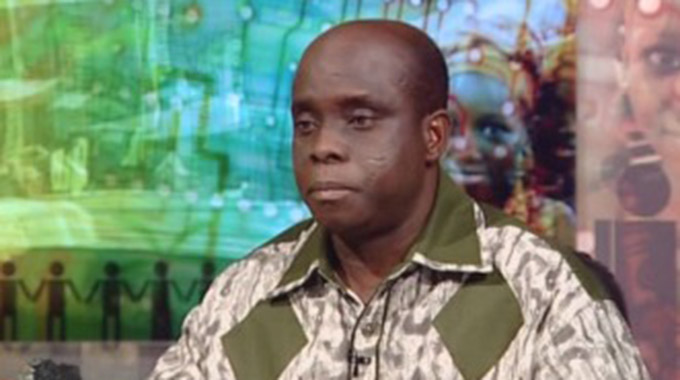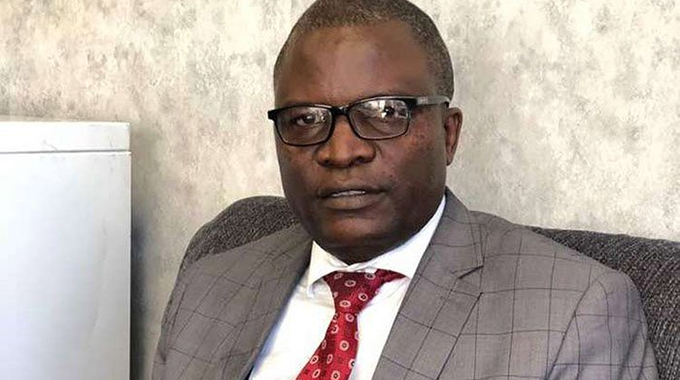Ethical issues in the practice of journalism

Ranga Mataire
Writing Back
As I write, two fellow scribes are behind bars after being denied bail for attempting to interview three MDC-Alliance members who are said to be receiving treatment at a private facility in Parktown, Harare.
Frank Chikowore and Samuel Takawira were arrested last Friday after they visited Harare West MP Joana Mamombe and activists Cecilia Chimbiri and Netsai Marova.
Chikowore and Takawira appeared before Mbare magistrate Manase Musiiwa, charged with disobeying an order by a police officer.
We will always commiserate with fellow scribes even when they are accused of having flouted the laws of the land. The first instinct of every scribe is to sympathise with one of your own.
But after sympathising, we take time to reflect on issues to do with ethics in journalism and whether or not this incident poses as a test case for younger scribes to understand the fact that, just like any other profession, journalism operates within the confines of the law and basic professional ethics.
Subordinating oneself to the law and ethics, is neither a sign of being pliable nor being pro-establishment.
Rather, adhering to the laws and ethics is the first step in understanding the basics in informing, educating and entertaining the public.
Since the matter of the two journalists is still pending in courts, restraint becomes cardinal in writing this piece.
However, the incident gives us an opportunity to reflect and revisit ethical issues in journalism and the media in general.
All over the world, journalists are governed by codes in the conduct of their work. Ethics are thus inseparable from journalism because the practice of journalism is centred on a set of essentially ethical concepts of freedom, democracy, truth, objectivity, honesty and the right to privacy.
All these concepts are relative to the laws and sensibilities of the operating environment of journalists.
If the proper role of journalism is viewed as that of providing information, then the ethical questions naturally need to focus on maintaining the quality of the information disseminated to various publics.
As journalists, we need to be conscious of the codes of conduct governing our work and the guiding compass for that is our national Constitution.
We need to come up with our own codes that reflect the dynamism of the profession, our cultural values, our shared experiences, as well as our social and political environment to formalise values and standards.
The failure by local journalists to come up with “universal” codes of conduct have raised serious questions about the status of our “profession” and the consequent moral implications of the behaviour of some of our fellow journalists.
Many a time, individuals who join the profession without entering journalism school, where ethics are taught in the first semester, have caused embarrassment to the profession.
There is always a thin line between political activism and robust news gathering. There is also a thin line between the right to privacy and the right of the public to know.
As highlighted by Andrew Belsey and Ruth Chadwick in an article titled “Ethics and politics of the media: the quest for quality” published in 1992; “Journalism is an honourable profession, though many of those who should care for it, often including its own professionals, have dishonoured it.”
The two also had harsh words for media consumers. They accuse consumers of sometimes “doing journalism no service by putting up with trivia and trash, accepting execrable standards as norm.” Yet journalism remains an honourable profession because it has an honourable aim of disseminating information that includes news, comment, opinions and other discourse needed to navigate the vagaries of daily life. This is an honourable exercise because the health of any community depends on it.
Of course, the advent of information technology has presented the media with a myriad of challenges. But instead of mourning, the media must celebrate the coming of new technology as the quest for information remains on high demand as human beings assess their chances of own survival as a species, or, at a less fateful, just worry about what sort of life for the future.
The media should take advantage of the fact that the world has become an electronic village where everyone has instant access through radio, television and new electronic media to the latest circulated information.
The demand for information has put pressure on media houses to not just be the first to break the news, but to come up with a unique slant or selling point of the story. This sort of pressure has often led some gullible journalists to deliberately or ignorantly flout existing laws in the quest for that “unique” slant.
One could be forgiven for thinking that some African journalists deliberately disregard the laws of their operating environment in order to be arrested.
They think being arrested elevates their status as daring journalists being persecuted in the pursuit of a public good. A lesson not taught at most journalism schools in Zimbabwe is that nowhere in the world does the Press operates in a vacuum. Journalism students are fed with the notion of a free press that does not exist anywhere in the world.
As Ghanaian veteran journalist Baffour Ankomah writes in “The Making of the Africa-Nation” edited by Professor Mammo Muchie and published in 2003; “On the wings of this deceit, we set forth to reproduce this ‘free press’ in Africa with catastrophic results. ‘Publish and be damned’ — then becomes a code to die for.”
It makes one to feel good for being seen to “uphold” press freedom by being truculently hostile to laws, disregarding ethics.
Even in Britain, seen by some as a standard, journalists are required to live and work within the law and an ethical code.
The media in Britain is restricted by criminal laws of official secrets, obscenity, blasphemy, sedition, and reporting restrictions on Irish terrorists’ groups and their alleged supporters; civil laws of libel and breach of confidence; and by the judge-made law of contempt of court.
In addition to the laws themselves, there is the problem of the judiciary generally unsympathetic to the ideas of a free press and freedom of information and firmly wedded to prior restraint through the use of interlocutory (‘gagging’) injunctions.
Many journalists are aware of the Calcutt Committee Report, which in January 1991 resolved to clean up the industry, eliminate intrusions into private lives or interfere with police investigations.

Sir David Calcutt
The report proposed that physical intrusion, including “door stepping” and electronic “eavesdropping” become illegal.
In response, while the Press was alarmed by this, it simply resolved to behave better.
How did the Calcutt Committee come about in the first place?
It came after two Sunday sports journalists had dressed up as medical staff in order to take photos of actor Gordon Kaye, who was hospitalised after a car crash. That case made legal history and was the basis of the Calcutt Committee Report.
There are more such cases.
In 2018, some journalists were spotted trying to sneak into a hospital where a Russian official was being treated. After strong condemnation by the hospital, Britain’s National Union of Journalists said the reporters “need to act responsibly and sensitively when covering stories at hospitals”.
In 2013, a journalist dressed up as priest and tried to make his way into the ward where Formula One Michael Schumacher was in a coma.
“It’s revolting, in my opinion,” is how Schumacher’s manager described the journalist’s conduct.
Codes of conduct are paramount in the building of a healthy journalism profession. Journalists need to familiarise themselves with media laws governing their operations.
We hope the duo of Chikowore and Takawira won’t be found on the wrong side of the law after trial.
Ultimately, there is need for the Zimbabwe Union of Journalists (ZUJ) and Media Institute of Southern Africa (MISA) — two bodies that purport to represent journalists — to conduct more awareness workshops on ethical issues in journalism and the media.









Comments